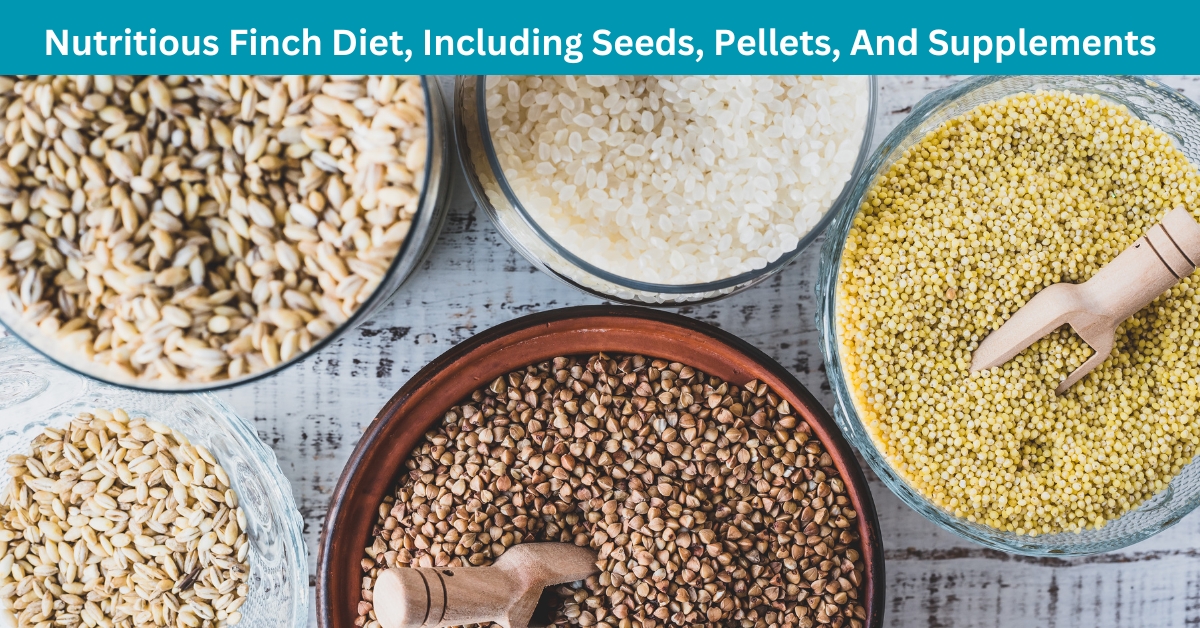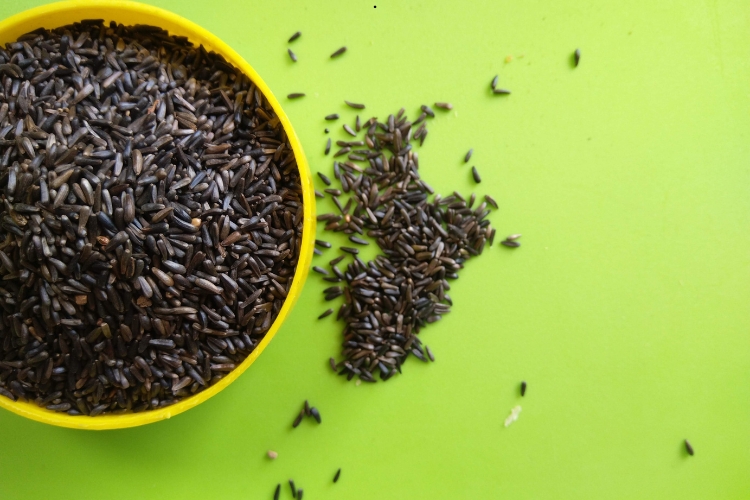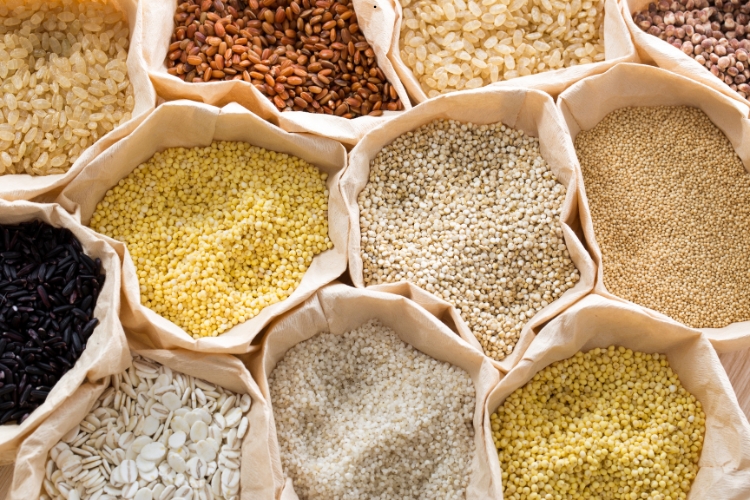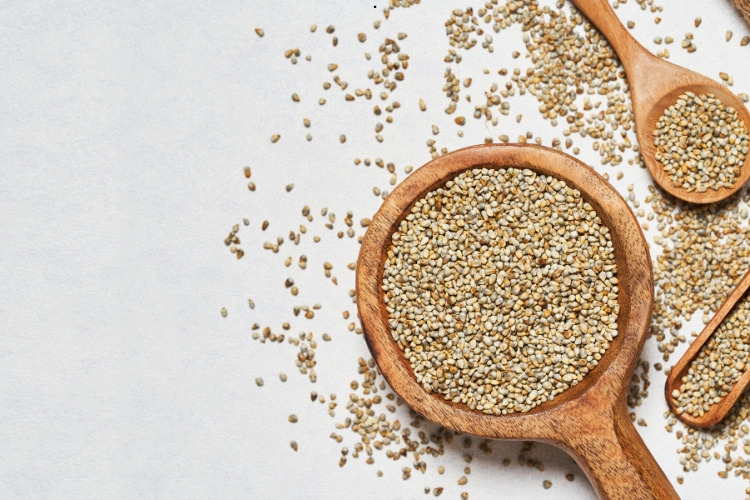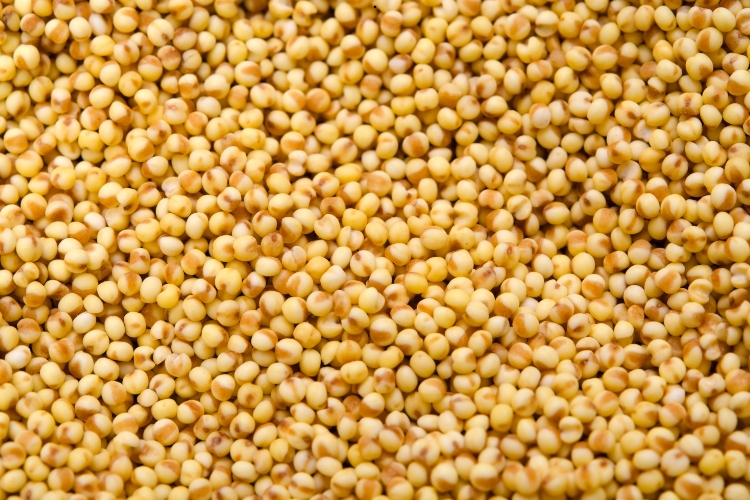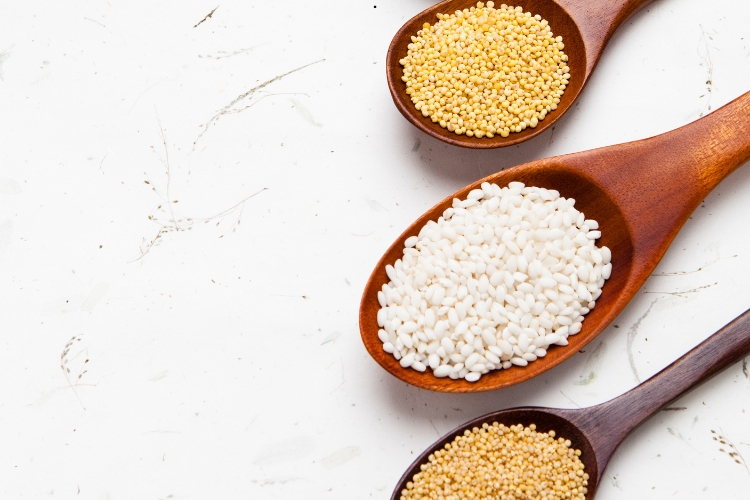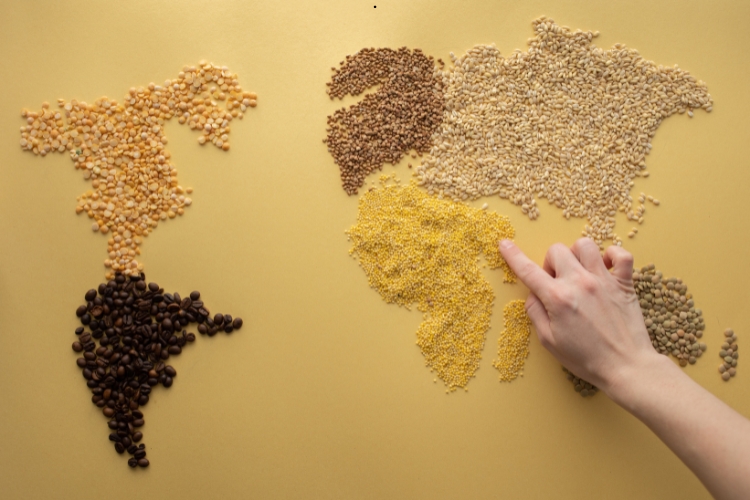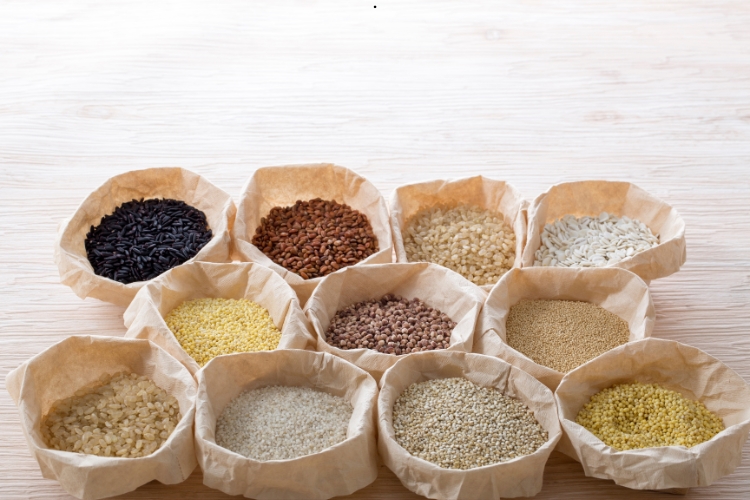A nutritious diet is essential for the health and well-being of finches, supporting their immune system, vibrant plumage, and overall vitality. Their diet should consist of a variety of high-quality seeds, specialized pellets, and targeted nutritional supplements.
Key components include seeds like millet, canary, and niger, along with the benefits of pelleted foods that ensure balanced nutrition. Fresh foods, calcium supplements, and clean water further enhance their health. Proper portion control, awareness of harmful foods, and seasonal dietary adjustments are also crucial.
By offering a diverse and well-rounded diet, finch owners can ensure their birds lead long, healthy, and active lives.
Key Takeaways!
| Key Aspect | Key Details |
|---|---|
| Seed Variety | Include millet, canary, niger, and sunflower seeds for a balanced diet. |
| Pelleted Foods | Offer consistent nutrient distribution, improved digestibility, and weight management. |
| Fresh Foods | Integrate leafy greens, fruits, and grated vegetables for added vitamins and minerals. |
| Calcium Supplements | Ensure strong bones and reproductive health with cuttlebone and mineral blocks. |
| Water Quality | Provide fresh, clean water daily, changing it regularly to prevent contamination. |
| Nutritional Supplements | Include vitamins, protein, and probiotics to support health during molting and breeding seasons. |
| Avoid Harmful Foods | Keep avocados, chocolate, caffeine, and processed human foods away from finches. |
| Monitoring & Adjustments | Observe your finches’ health and adjust your diet based on individual needs and seasonal changes. |
Essential Components of a Nutritious Finch Diet
1. Seed Foundations for Finch Nutrition
Seeds form the cornerstone of a finch’s diet, but variety is crucial. High-quality seed mixes specifically designed for finches should include a diverse blend of:
- Millet
- Canary seeds
- Niger seeds
- Sunflower hearts
- Safflower seeds
2. Pellet Nutrition Advantages
Modern avian nutrition emphasizes pellets as a superior dietary component. These compressed nutritional powerhouses offer several key benefits:
- Balanced macro and micronutrient profile
- Consistent nutritional content
- Reduced selective eating behaviors
- Enhanced digestibility
3. Critical Supplemental Nutrients
Beyond basic seeds and pellets, finches require targeted supplementation to meet their unique physiological demands. Calcium-rich foods play a paramount role in maintaining strong bone structure and supporting reproductive health. Consider incorporating:
- Cuttlebone
- Mineral blocks
- Calcium-fortified supplements
4. Fresh Food Integration
Introducing fresh foods provides essential vitamins and minerals that dried components might lack. Recommended fresh options include:
- Leafy greens like spinach and kale
- Small pieces of fresh fruits
- Grated vegetables
- Sprouted seeds
Importantly, introduce fresh foods gradually and remove any uneaten portions within a few hours to prevent bacterial growth.
5. Hydration and Dietary Considerations
Clean, fresh water is as critical as solid nutrition. Change water daily and use specialized finch water dispensers to prevent contamination. Some owners opt for filtered or bottled water to ensure maximum purity.
6. Nutritional Quantity and Frequency
Portion control remains essential. Adult finches typically require approximately 1-2 tablespoons of mixed diet daily. Morning and evening feedings work best, allowing metabolic processing and preventing overfeeding.
7. Potential Dietary Risks
Certain foods can be harmful and should be strictly avoided:
- Avocado
- Chocolate
- Caffeine
- Processed human foods
- Salty or sugary treats
These substances can cause serious health complications or even prove fatal to finches.
8. Specialized Dietary Needs
Different finch species might have nuanced nutritional requirements. Consult an avian veterinarian or specialist to understand specific dietary needs based on your finch’s breed, age, and health condition.
Implementing a comprehensive, balanced diet requires patience, observation, and continuous learning. Monitor your finch’s weight, energy levels, and overall appearance to gauge nutritional effectiveness. Regular veterinary check-ups can help fine-tune dietary strategies and address any emerging health concerns proactively.
Seed Selection and Variety for Optimal Finch Nutrition
1. Essential Seed Types for Finch Nutrition
A well-rounded finch diet relies on a diverse mix of high-quality seeds that provide comprehensive nutritional benefits. Millet, sunflower, and nyjer seeds form the cornerstone of an optimal feeding strategy. Each seed variety contributes unique nutritional profiles that support different aspects of your finch’s health.
- Millet Seeds: Packed with essential carbohydrates and moderate protein content
- Sunflower Seeds: Rich in healthy fats and protein
- Nyjer Seeds: High in beneficial oils and excellent for feather health
2. Balancing Nutritional Composition
Professional avian nutritionists recommend creating a seed mix that mimics the natural foraging diet of wild finches. This means carefully proportioning different seed types to ensure balanced nutrition. Typically, a mix should contain approximately 60-70% primary seeds with supplementary varieties making up the remaining percentage.
a. Protein and Nutrient Considerations
Protein is particularly critical for finch health. While seeds provide some protein, they shouldn’t be the sole source. Consider incorporating specialized finch pellets that are fortified with additional proteins, vitamins, and minerals to support comprehensive nutritional needs.
3. Seed Quality and Selection Criteria
Not all seeds are created equal. When selecting seeds for your finches, prioritize these key factors:
- Freshness of seeds
- Organic and pesticide-free sources
- Proper storage to maintain nutritional integrity
- Variety to prevent dietary monotony
a. Potential Seed Risks
Some seeds can pose potential health risks if not carefully managed. Sunflower seeds, while nutritious, are high in fat and should be offered sparingly. Overfeeding can lead to obesity and related health complications in finches.
4. Supplementary Nutrition Strategies
Beyond seeds, finches benefit from additional nutritional supplements. Calcium-rich cuttlebone, mineral blocks, and occasional fresh greens can significantly enhance their dietary profile. These supplements help address potential nutritional gaps that seeds alone cannot fulfill.
a. Seasonal Dietary Adjustments
Finch nutritional needs can vary with breeding seasons and environmental changes. During molting periods, increase protein-rich seeds and supplements to support feather regeneration. In breeding seasons, offer more nutrient-dense seed varieties to support reproductive health.
5. Hydration and Seed Management
Proper seed storage is as important as selection. Store seeds in cool, dry environments to prevent mold and bacterial growth. Always provide fresh, clean water alongside your carefully curated seed mix to support optimal digestion and overall health.
a. Monitoring and Adaptation
Regularly observe your finches’ eating habits and physical condition. Each bird may have slight variations in dietary preferences. Be prepared to adjust your seed mix and supplementation based on individual bird responses and veterinary recommendations.
By implementing a thoughtful, comprehensive approach to seed selection and nutrition, you can ensure your finches maintain vibrant health, robust immune systems, and enthusiastic vitality. Remember that dietary diversity and quality are key to supporting these delightful, energetic birds.
Importance of Pelleted Foods in Finch Dietary Planning
1. Understanding Pelleted Nutrition for Finches
Pelleted foods represent a breakthrough in avian nutrition, carefully crafted to deliver precise nutritional requirements. Unlike loose seeds, these compressed food sources ensure that finches receive a consistent blend of essential nutrients with every bite. The manufacturing process allows for:
- Uniform nutrient distribution
- Reduced selective eating
- Improved digestibility
- Balanced macro and micronutrient content
2. Key Nutritional Components in Pelleted Finch Diets
High-quality pelleted foods typically contain a strategic mix of ingredients designed to support optimal finch health. These include:
- Protein sources from plant-based ingredients
- Essential amino acids
- Vitamins A, D, E, and K
- Critical minerals like calcium and phosphorus
- Trace elements supporting metabolic functions
3. Benefits of Implementing Pelleted Diets
Veterinary nutritionists emphasize the significant advantages of incorporating pelleted foods into finch dietary plans. These advantages extend beyond basic nutrition, addressing multiple aspects of bird health and development.
a. Comprehensive Nutritional Coverage
Pelleted diets eliminate the risk of nutritional gaps that can occur with seed-only feeding. Each pellet contains a calculated blend of nutrients, preventing selective eating where birds might choose only certain seeds and miss critical nutritional elements.
b. Digestive System Support
The carefully processed pellets are designed for optimal digestibility. Their compact structure helps improve nutrient absorption and reduces the strain on the finch’s delicate digestive system. This can lead to improved metabolic efficiency and overall health.
c. Weight Management
Controlled nutrient density in pelleted foods helps maintain healthy body weight. Unlike loose seeds which can be high in fat, these formulations provide a balanced caloric intake, supporting proper growth and preventing obesity-related health issues.
4. Implementing Pelleted Diets Effectively
Transitioning to pelleted foods requires a gradual and strategic approach. Experts recommend:
- Introducing pellets alongside existing diet
- Monitoring bird’s acceptance and adaptation
- Ensuring fresh, high-quality pelleted food
- Consulting avian nutrition specialists
a. Supplementation Considerations
While pelleted diets provide comprehensive nutrition, occasional supplements can further enhance dietary quality. Fresh fruits, vegetables, and specific mineral blocks can complement pelleted foods, offering additional nutritional variety.
5. Selecting Quality Pelleted Foods
Not all pelleted foods are created equal. Bird owners should prioritize products from reputable manufacturers, checking for:
- Ingredient transparency
- Nutritional analysis certification
- Age-specific formulations
- Absence of artificial preservatives
By understanding and implementing a well-planned pelleted diet, finch owners can significantly contribute to their birds’ long-term health, vitality, and potential lifespan. The strategic approach to nutritional planning demonstrates a commitment to providing optimal care for these fascinating companion animals.
Nutritional Supplements and Their Role in Finch Health
1. Essential Nutritional Considerations for Finches
Finches have unique dietary requirements that demand careful attention to nutritional balance. While seeds provide a fundamental base, they often lack the comprehensive nutritional profiles necessary for robust health. Professional avian nutritionists recommend a multifaceted approach to supplementation that addresses specific physiological needs.
a. Key Nutritional Supplements
- Calcium-rich mineral blends
- Vitamin complex formulations
- Protein-enhancing supplements
- Probiotics for digestive health
Calcium Supplementation Strategies
Calcium plays a pivotal role in finch health, particularly for breeding birds and those experiencing rapid growth. Crushed cuttlebone and specialized calcium powders can prevent potential deficiencies that might lead to serious health complications such as weakened bone structure and egg-laying challenges.
b. Vitamin and Mineral Integration
Commercial finch supplements typically contain a balanced blend of essential nutrients including:
- Vitamin A for immune system support
- Vitamin D3 for calcium metabolism
- Vitamin E for cellular protection
- B-complex vitamins for metabolic functions
Protein Supplementation Techniques
During breeding seasons and molting periods, finches require increased protein intake. Specialized protein supplements derived from egg-based sources or insect proteins can significantly enhance nutritional intake. These supplements support feather regeneration, muscle development, and overall metabolic processes.
c. Probiotic and Digestive Health
Advanced finch nutrition now includes targeted probiotic supplements that promote beneficial gut bacteria. These microorganism blends help improve nutrient absorption, strengthen immune responses, and mitigate potential digestive disorders that can compromise avian health.
Hydration and Liquid Supplements
Liquid vitamin supplements offer an efficient method of nutrient delivery. When added to drinking water, these concentrated formulations ensure consistent nutritional support. Bird owners should carefully follow recommended dosage instructions to prevent potential over-supplementation.
d. Seasonal Nutritional Adjustments
Different life stages and seasonal changes demand nuanced nutritional approaches. Breeding finches, juvenile birds, and senior finches have varying supplementation requirements. Professional avian veterinarians recommend periodic health assessments to customize supplement protocols.
Administration Recommendations
Successful supplement integration requires strategic implementation. Gradual introduction, consistent monitoring, and professional guidance help ensure optimal absorption and minimize potential digestive disruptions. Quality supplements from reputable manufacturers provide the most reliable nutritional support.
e. Safety and Quality Considerations
Not all supplements are created equal. Bird owners should prioritize supplements specifically formulated for finches, avoiding generic or inappropriate nutritional products. Consultation with avian nutrition experts can help develop personalized supplementation strategies tailored to individual bird needs.
By understanding and implementing comprehensive nutritional supplementation, finch owners can significantly enhance their birds’ quality of life, supporting longevity, vibrant plumage, and overall physiological wellness.
Balancing Macronutrients for Finch Wellness
1. Understanding Protein Requirements
Protein plays a critical role in finch nutrition, supporting muscle development, feather growth, and overall body function. Wild finches naturally consume a variety of protein sources, including:
- Insects and small invertebrates
- Sprouted seeds
- Egg-based supplements
- Specialized protein-rich pellets
2. Carbohydrate Considerations
Carbohydrates provide essential energy for these active birds. Seeds represent the primary carbohydrate source, but it’s crucial to select high-quality, nutrient-dense options. Recommended carbohydrate sources include:
- Millet
- Canary seed
- Sunflower hearts
- Fortified seed mixes
3. Fat Metabolism in Finches
Healthy fats are vital for hormonal balance, feather condition, and metabolic functions. Unlike mammalian diets, finches require carefully measured fat intake to prevent obesity while maintaining optimal health. Recommended fat sources include:
- Sunflower seeds
- Niger seeds
- Small quantities of nuts
- Omega-3 enriched supplements
4. Micronutrient Integration
Beyond macronutrients, micronutrients play a crucial role in finch wellness. Calcium, vitamin D, and trace minerals support bone density, feather quality, and overall immune function. Strategic supplementation can include:
- Cuttlebone
- Mineral blocks
- Liquid vitamin supplements
- Fortified commercial finch mixes
5. Dietary Balance Strategies
Creating an ideal nutritional profile requires more than simply mixing ingredients. Professional avian nutritionists recommend a diversified approach that mimics natural foraging patterns. Key strategies include:
- Rotating seed varieties
- Introducing fresh sprouted seeds
- Providing varied protein sources
- Monitoring portion sizes
6. Potential Nutritional Challenges
Finches are susceptible to nutritional imbalances that can compromise their health. Common issues include:
- Excessive seed-only diets leading to malnutrition
- Obesity from high-fat seed consumption
- Calcium deficiencies affecting reproductive health
- Inadequate protein causes feather and growth problems
7. Practical Feeding Recommendations
Professional bird care experts suggest a comprehensive approach to finch nutrition:
- Aim for 70% high-quality seed mix
- Incorporate 20% pelleted food
- Supplement with 10% fresh foods and treats
- Provide constant access to fresh water
By understanding and implementing a holistic approach to macronutrient balance, bird enthusiasts can support their finches’ robust health, vibrant plumage, and extended lifespan. Consistent monitoring, professional consultation, and adaptive feeding strategies ensure these delightful birds receive optimal nutritional support.
Conclusion
Providing your finches with a well-rounded, nutritious diet is crucial for their long-term health, vitality, and happiness. By carefully selecting a diverse range of seeds, high-quality pellets, and targeted nutritional supplements, you can ensure your feathered companions receive the essential nutrients they need to thrive.
The key to successful finch nutrition lies in understanding and implementing a balanced approach. Each dietary component plays a critical role in supporting your birds’ physiological functions, from maintaining robust immune systems to promoting vibrant feather quality and supporting optimal reproductive health.
Remember that no single food source can provide complete nutrition. Variety is paramount. Combining different seed types, introducing pelleted foods, and strategically incorporating supplements will help prevent nutritional deficiencies and support your finches’ overall wellness.
Regular monitoring of your finches’ diet, observing their health, and consulting with avian veterinarians can help you refine and adjust their nutritional plan. Pay attention to their weight, energy levels, and physical appearance as indicators of dietary effectiveness.
Ultimately, a thoughtful and comprehensive nutritional strategy is an investment in your finches’ quality of life. By dedicating time and care to understanding their dietary needs, you’re not just feeding them—you’re nurturing their potential for a long, healthy, and vibrant existence.
Commit to ongoing learning and adaptation, and your finches will reward you with their beautiful songs, active behaviors, and robust health.

